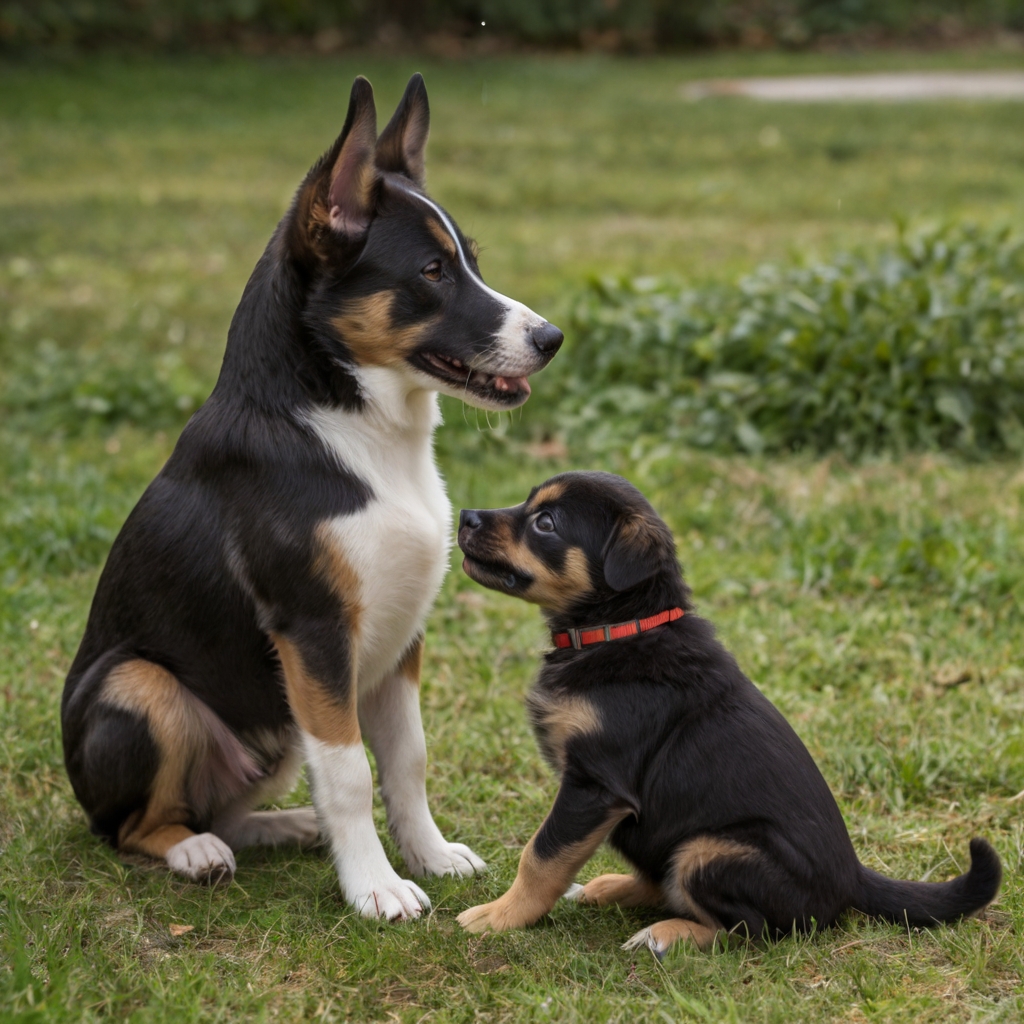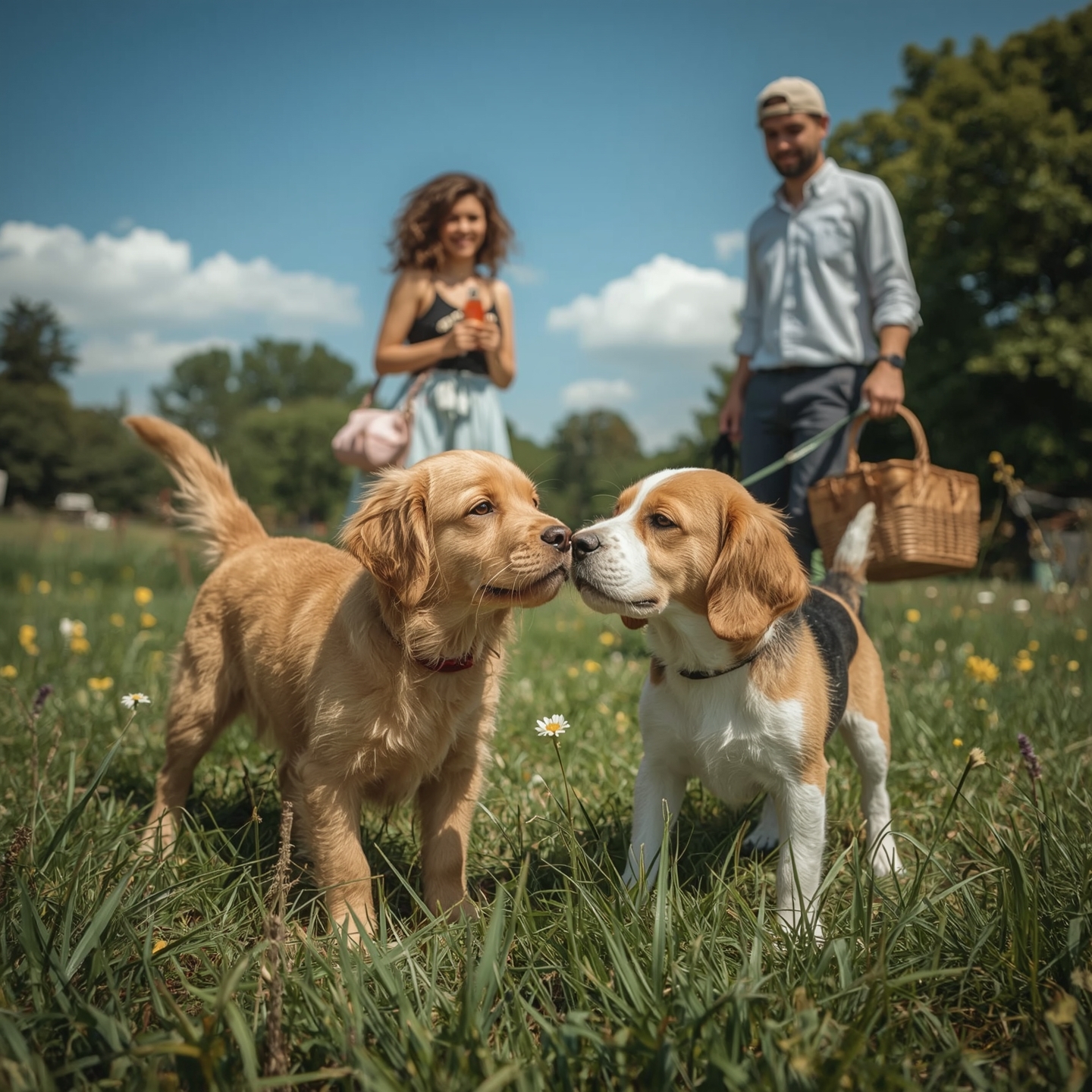Learn how to properly socialize your puppy with other dogs. From first vaccinations to choosing the right environments, ensure positive and safe experiences for your pup.
Socializing your puppy with other dogs is a critical part of their early development and has lasting effects on their behavior throughout life. Proper socialization helps prevent fear and aggression, builds confidence, and encourages healthy play habits. Here’s how to successfully socialize your puppy with other dogs and set them up for positive interactions.
1. Why Socialization Is Important for Puppies
Early socialization plays a crucial role in your puppy’s development. Here are the main benefits:
- Prevents fear and aggression: Puppies that are properly socialized are less likely to develop fear or aggressive behavior towards other dogs or unfamiliar situations.
- Builds confidence: Positive socialization experiences help puppies build confidence, making them more comfortable in various environments.
- Encourages healthy play habits: Socializing your puppy with other dogs helps them learn appropriate play behavior, making interactions with other dogs more enjoyable and less stressful.
- Makes vet visits and grooming easier: Puppies that are used to interacting with other dogs are generally more comfortable during visits to the vet and grooming sessions, as they are familiar with being handled.
2. Steps to Proper Socialization: A Guide for Success
To ensure successful socialization, follow these steps:
- Start after the first set of vaccinations: Wait until your puppy has received their first set of vaccinations before introducing them to other dogs. This helps protect them from potential diseases.
- Introduce one dog at a time in neutral environments: Start by introducing your puppy to one dog at a time. Neutral areas, such as a park or open field, are ideal as they reduce territorial behavior from other dogs.
- Watch for body language: Pay close attention to your puppy’s and the other dog’s body language. Positive signs, such as tail wagging and relaxed postures, indicate a good interaction. On the other hand, growling or stiff body language may indicate stress or discomfort, and you should intervene to prevent any negative experiences.
- Use positive reinforcement: After each successful interaction, reward your puppy with praise or treats. This reinforces good behavior and helps your puppy associate positive experiences with other dogs.
- Keep sessions short and safe: Puppy socialization should be fun and low-stress. Keep sessions short, especially at the beginning, and ensure that the environment is safe and calm for both puppies and adult dogs.
3. Best Places to Socialize Your Puppy with Other Dogs
The right environment is key to successful socialization. Here are some great places to help your puppy interact with other dogs:
- Puppy classes: Puppy socialization classes provide a controlled and safe environment for your puppy to meet other dogs and learn important social skills.
- Pet-friendly parks: Pet-friendly parks are ideal for meeting other dogs in a safe and neutral environment. Choose parks that have designated dog areas to ensure a secure setting for your puppy to explore.
- Walks in busy neighborhoods: Walking your puppy through a busy neighborhood can expose them to different types of people, dogs, and environments. This helps build confidence in new situations.
- Friend’s backyard with calm adult dogs: If possible, arrange playdates with other puppies or calm adult dogs. This offers a safe, supervised environment for your puppy to interact and learn appropriate behavior.
Golden Tip: Never Force Interaction
One of the most important aspects of socializing your puppy is to let them approach other dogs at their own pace. Never force an interaction if your puppy is hesitant or nervous. Allow them time to adjust and build trust with other dogs gradually.
Conclusion: Building a Confident and Friendly Puppy
Properly socializing your puppy with other dogs is essential for their long-term happiness and well-being. By following the steps above and ensuring positive interactions, you’ll help your puppy grow into a confident, well-behaved adult dog who enjoys the company of other dogs. Remember, socialization is a process that takes time and patience, but the rewards are well worth the effort.
Read More:


